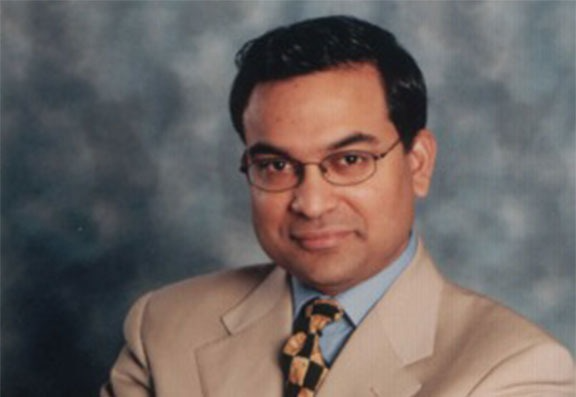
15
Jul
2010
I attended the fascinating FACE (Facial Aesthetic Conference and Exhibition) 2010 annual conference at the Royal College of Physicians in July and was honoured to be asked to deliver the keynote opening address. I was particularly thrilled, as I had the privilege of accepting a similar invitation a few years ago when this series of successful annual Conferences was just beginning to get off the ground.
My talk arose out of my experience working in private practice in Harley St taking referrals from my medical colleagues to assist in improving the well-being of patients they are working with. In this area of work, I am not consulting with people who are psychiatrically unwell in any way, but more they are emotionally ambitious.
In the last few years, economies may have dipped and even doubled dipped, but the economy surrounding face and body aesthetics continue to relentlessly surge ever upwards. Some might describe it as a kind of ultimate Face Lift?
One estimate I have seen is that the growth in demand for these kinds of procedures over the last ten years is roughly 500% across the Western World – but it has to be said that the largest engine to this growth still comes from the USA. Incidentally, these amazing growth statistics hint that if someone you know looks incredible for their age, then quite possibly they have had ‘work done. Admitting to aesthetic procedures remains an enormous taboo.
One issue that many of the doctors involved in this area buttonholed me to inquire about during the FACE conference, was the psychology of those seeking to improve their appearance. Many were anxious about how to ensure their patients were in the long run satisfied with whatever procedure they had sought. There was an acknowledgement that even though objectively there had been an improvement in physical appearance following the kind of procedures on offer at the FACE exhibition, oftentimes the emotional reaction was much more variable.
While the vast majority were delighted, there were some who appeared less enthusiastic, and a very small minority became disappointed.
The key contention in my talk at FACE 2010, and also in the conversations with many of the medical professionals I met during the Conference, is that psychology plays a pivotal role in the decision and successful execution of aesthetic improvement.

For example, the life event that often prompts many, particularly women, to seek an intervention is some kind of recent relationship breakdown, most classically a divorce.
It’s perfectly understandable in the blow to self-esteem and upset that follows this kind of terrible emotional upheaval that many women might seek an aesthetic intervention.
This might make them feel better about themselves and give them the kind of confidence to ‘get back out there and seek a new relationship.
However, if this wider background context to why someone is seeking help with improving their looks is not fully grasped by the professional consulted, then disaster can follow. A woman might be disappointed following an otherwise helpful procedure, because unconsciously she was hoping it would deliver her estranged husband back. When this doesn’t always happen she could become devastated. She was however expecting the procedure to do more for her than was ever possible to deliver if she didn’t also produce some parallel psychological changes.
Indeed it’s possible for self-esteem to plummet even lower if expectations were not properly dealt with psychologically, as well as learning how to integrate a change in appearance into your overall life.
We know that aesthetic improvements can be enormously helpful in improving well-being. However a key mechanism is that the improvement in appearance bolsters self-esteem and self-confidence, and it’s the consequent change in your interactions with the world at large, than in turn brings about longer-term well-being benefits.
The procedure, I’m afraid, can’t do all the work for you.
However, if you properly harness the improvement in looks and take full advantage of it by also seizing the opportunity to change psychologically, then a positive spiral appears. You get positive feedback from others directly and indirectly about yourself and this in turn raises your self-esteem, and you end up feeling you look even better than you ever did.
So it’s entirely possible that if you also alter the way you think about yourself and others, alongside an improvement in looks, the world becomes your oyster.
If you want to read more, the experts at Consulting Room really know what they're talking about and have put together some Face Lift FAQs just for you.
If you have more questions, you can use the Face Lift question feature to talk to our panel of trained medical experts.
If you're keen to get started with any of these treatments right away then you're in luck - those clever folks also have a list of trusted, accredited Face Lift clinics in your area.
Many thanks to the author of this blog Dr Raj Persaud who is the author of the best-selling guide to the power of beauty entitled 'Simply Irresistible', He has been recognised for his research achievements, which include over a hundred publications in academic journals, with a Fellowship of the Royal College of Psychiatrists and a Fellowship of University College London.
He was recently voted one of the top ten psychiatrists in the UK by a poll of psychiatrists in the Independent on Sunday Newspaper and voted one of the top twenty ‘gurus’ in the world by The Times Newspaper.
Dr Raj Persaud is a Consultant Psychiatrist working in private practice in Harley St and Emeritus Visiting Gresham Professor for Public Understanding of Psychiatry.

Ellanse vs polynucleotides: An expert skin doctor clarifies the distinctive differences...
Whether you're in your twenties combatting breakouts or seeking to address and prevent fine lines, iS Clinical has tailored a solution for you..
Did you know not all facial filler is the same? Each facial area needs and deserves tailored attention, specific products, and bespoke techniques to achieve the best and safest result!
Hey, wait!
Before you go.....
Let's stay in touch, pop your details here and we'll send our editor's hand-picked updates on your fave subjects.